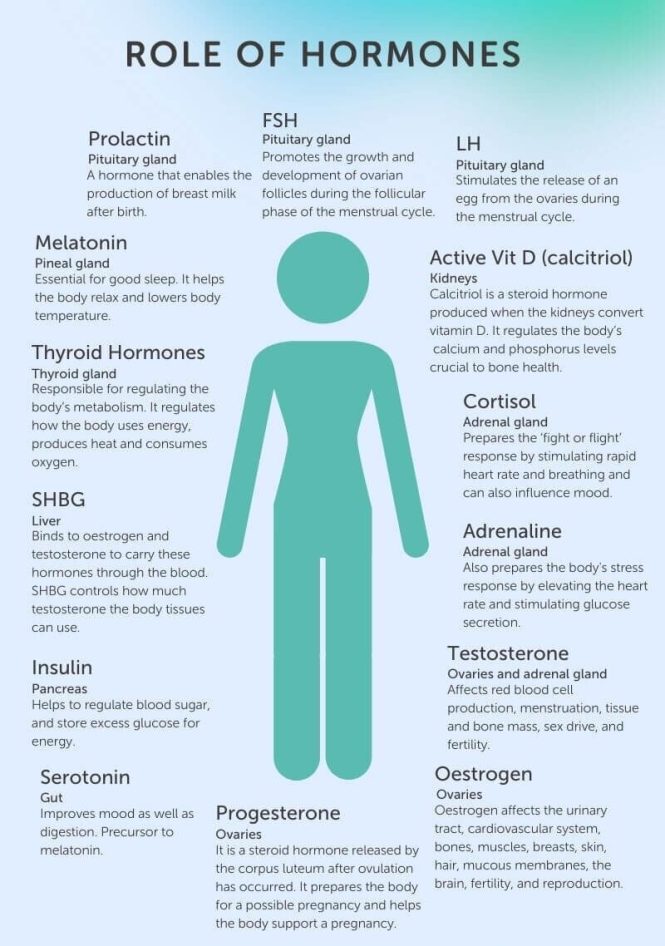

Understanding hormonal imbalances is paramount for achieving optimal well-being. Hormones orchestrate a multitude of bodily functions, and any disruption in their delicate balance can lead to a range of uncomfortable symptoms and potential health complications. This comprehensive guide will delve into the intricacies of hormonal imbalances, exploring their symptoms, causes, and effective treatment options. We’ll also examine the important role of lifestyle choices in managing hormonal disruptions. This article will be structured into sections covering: common symptoms, various potential causes, and specific treatment approaches, including lifestyle adjustments. Let’s dive in!
Recognizing the Symptoms of Hormonal Imbalances
Hormonal imbalances manifest in a wide array of symptoms, often impacting various bodily systems. Recognizing these symptoms is the first step toward diagnosis and treatment. It’s important to note that symptoms can vary greatly depending on the specific hormone affected, the underlying cause, and the individual’s overall health. Understanding these varying manifestations is crucial for seeking timely medical attention.
Common Physical Symptoms
Many individuals experience physical symptoms such as unexplained weight gain or loss, fatigue, mood swings, and changes in sleep patterns. These symptoms can stem from imbalances in hormones like thyroid hormones, insulin, and cortisol.
Mood and Cognitive Changes
Hormonal imbalances can significantly impact mood and cognitive function. Symptoms like anxiety, depression, irritability, difficulty concentrating, and memory problems may indicate a disruption in hormonal equilibrium. These can be particularly prevalent during times of significant hormonal shifts, such as puberty, pregnancy, or menopause.
Reproductive System Issues
For women, hormonal imbalances can manifest as irregular periods, painful periods, infertility, or excessive menstrual bleeding. In men, symptoms like erectile dysfunction, reduced libido, and decreased sperm count may arise. The reproductive system is highly sensitive to hormonal changes.
Other Possible Indicators
Other potential symptoms include skin problems, digestive issues, hair loss or thinning, and increased sensitivity to heat or cold. These various symptoms signal that something may be amiss and indicate the need for further investigation.
Unveiling the Potential Causes of Hormonal Imbalances
Several factors can contribute to hormonal imbalances, ranging from lifestyle choices to underlying medical conditions. Identifying these factors is crucial for implementing effective treatment plans.
Lifestyle Factors
Poor dietary habits, lack of exercise, inadequate sleep, and chronic stress can all disrupt the delicate balance of hormones in the body. The effect of these lifestyle choices may be subtle initially, but can compound over time. Maintaining a healthy lifestyle can help maintain hormonal balance.
Underlying Medical Conditions
Certain medical conditions, like thyroid disorders, polycystic ovary syndrome (PCOS), Cushing’s syndrome, and diabetes, can disrupt hormone production and signaling. Diagnosing and treating any underlying medical conditions is a necessary step towards restoring hormonal equilibrium.
Medications and Supplements
Specific medications and supplements can interfere with hormone production and metabolism, potentially leading to imbalances. Awareness of these potential interactions is key when considering supplements and medications.
Exploring Effective Treatment Options for Hormonal Imbalances
Treatment options for hormonal imbalances are multifaceted and tailored to individual needs and underlying causes.
Medical Interventions
Medical interventions, such as medication adjustments, hormone replacement therapy (HRT), or surgery, are often employed to correct specific hormonal imbalances. These interventions require careful consideration and consultation with healthcare professionals.
Lifestyle Modifications
Lifestyle modifications, including dietary changes, regular exercise, stress management techniques, and adequate sleep, can play a significant role in restoring hormonal balance. These strategies may involve adjustments to dietary patterns, incorporating physical activity, and practicing stress-reducing techniques. By fostering healthy habits, individuals can support hormonal health.
Complementary Therapies
Alternative therapies, such as acupuncture, herbal remedies, and mindfulness practices, may also aid in managing hormonal imbalances. These approaches are gaining traction for supporting overall well-being, but should be considered as complementary therapies, not substitutes for conventional medical treatments.
Diagnosis and Monitoring
Early diagnosis is crucial for effective treatment of hormonal imbalances. Healthcare professionals can conduct comprehensive assessments that include physical examinations, blood tests, and imaging studies to identify underlying issues and tailor a personalized treatment plan.
Monitoring Progress
Regular monitoring of hormonal levels and symptoms is essential to gauge the effectiveness of the chosen treatment approach. This proactive approach helps identify any necessary adjustments to the treatment plan as needed.
The Importance of Collaboration
Collaboration between patients and healthcare professionals is essential for optimal outcomes. Open communication and shared decision-making are key to a successful journey of managing hormonal imbalances.
Maintaining a Healthy Lifestyle for Hormonal Balance
Sustaining a healthy lifestyle is pivotal in supporting overall hormonal health. Adopting healthy routines can contribute to a healthier hormonal landscape.
Prioritizing Nutrition
A balanced diet rich in fruits, vegetables, lean proteins, and whole grains is essential for providing the necessary nutrients for hormone production and regulation. This healthy eating approach supports the functioning of hormones.
Regular Physical Activity
Regular physical activity, such as exercise and cardiovascular activities, contributes positively to hormonal balance. Exercise supports the proper function and regulation of hormones, supporting overall health and well-being.
Managing Stress Effectively
Chronic stress can disrupt hormonal balance. Implementing stress-management techniques like meditation, yoga, and deep breathing exercises can be beneficial. Stress-reduction strategies play a vital role in maintaining hormonal harmony.
Prioritizing Sleep
A consistent sleep schedule and quality sleep are crucial for optimal hormone regulation. Ensuring adequate sleep supports the body’s natural hormone production and maintenance of a balanced endocrine system.
In conclusion, understanding hormonal imbalances is crucial for overall well-being. Recognizing the symptoms, exploring potential causes, and consulting with healthcare professionals are essential steps in managing and potentially reversing these imbalances. By adopting a holistic approach that combines medical interventions with lifestyle modifications, individuals can effectively address hormonal disruptions and experience improved health and quality of life. Remember, seeking professional medical advice is always the first and best step in addressing any health concerns. You are not alone in this journey, and help is available. Consider reaching out to support groups or online communities for further encouragement and shared experiences. By prioritizing your health and well-being, you pave the way for a more balanced and fulfilling life.